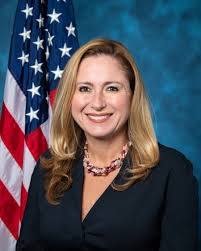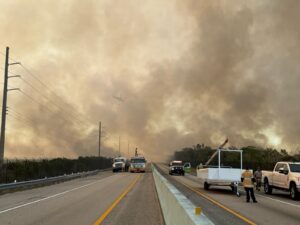
June is World Ocean Month, a time to celebrate, honor, and learn about our ocean.
The ocean is the heart of our diverse, vibrant culture in South Florida, and it is vital to critical industries in our state, from tourism to fishing. This majestic resource is key to our survival, providing most of the oxygen we breathe and much of the food we eat. It is home to rich coastal marine ecosystems that protect our communities from natural disasters. We must protect it. Vulnerable communities in South Florida continue to see the impacts of human-caused climate change and the loss of natural spaces. As lawmakers, we must take decisive action not just to protect, but to harness the power of the ocean in the fight against climate change.
Legislation on climate must include comprehensive ocean climate action, starting with addressing ocean acidification. Acidification is a direct result of increased carbon emissions. Marine and coastal ecosystems are extremely vulnerable to climate change. Ocean acidification bleaches vibrant coral reefs and turns blue carbon ecosystems like mangroves, marshes, and seagrass beds from natural carbon sinks into major sources of greenhouse emissions.
We must transition off of fossil fuels and towards a clean energy future to mitigate ocean acidification and combat the climate crisis. And, in every response to climate change, we must focus on protecting communities, especially communities of color, who disproportionately feel the effects of climate change, and those most vulnerable to sea-level rise and catastrophic storms. I’m proud to support efforts like rejoining the Paris Climate Agreement and offshore drilling moratoriums — but there is more we can do.
We must also protect the ocean’s natural ability to store carbon by restoring wetlands and coastal habitats. The degradation of the Everglades, our most famous blue carbon ecosystem, has substantially decreased access to clean water and made us even more vulnerable to the climate crisis. Consequently, our coastal communities are left without the most vital natural infrastructure to protect us from flooding and major storms, forcing thousands of families out of their homes, and negatively impacting South Florida’s fishing and tourism economy.
Finally, we have to adapt to a world that’s already being impacted by climate change. Scientists are uniting behind a goal of protecting at least 30 percent of the land and ocean by 2030. Some estimate that the U.S. loses a football field’s worth of natural lands to development every 30 seconds. Half of all freshwater and saltwater wetlands in the lower 48 have already been lost, and two-thirds of the world’s marine environments have been “severely altered” by human activity. In Florida, human development has shrunk the Everglades to less than half its original size and the coral reefs in the Florida Keys National Marine Sanctuary are already feeling the effects of coral bleaching and other stressors. By protecting more than 30% of our ocean and supporting existing conservation programs, such as the Land and Water Conservation Fund (LWCF) — which provides millions in funding for the Everglades and Biscayne Bay National Parks as well as hundreds of other outdoor spaces in the state — we can ensure that our invaluable ecosystems and nature are protected in the future.
The data and science are clear: we cannot wait to act on the climate crisis, and we are running out of time to make serious progress. Our to-do list is long, but the consequences of inaction are too severe to ignore. I believe that protecting and harnessing our ocean in the fight against climate change must be a part of the solution to protect our communities and save our planet. I will continue fighting to keep my promise to South Floridians of a healthier, safer, and more sustainable environment for future generations.
— Debbie Mucarsel-Powell
U.S. representative for Congressional District 26, representing portions of Miami-Dade and the Florida Keys



















